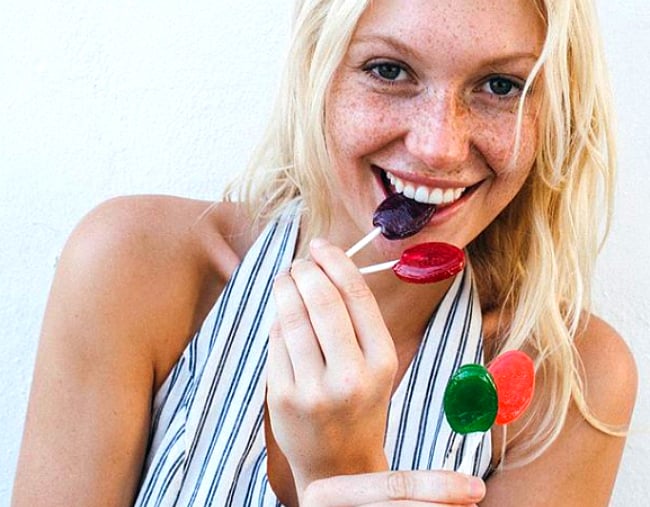
Content warning: This post discusses themes of eating disorders and mental illness some readers may find triggering.
On Wednesday, Kim Kardashian posted a picture of herself sucking on a harmless lollipop to her 111 million Instagram followers.
Only, it wasn’t harmless. It was an appetite suppressant lollipop.
“#ad You guys… @flattummyco just dropped a new product. They’re Appetite Suppressant Lollipops and they’re literally unreal. They’re giving the first 500 people on their website 15 percent OFF so if you want to get your hands on some… you need to do it quick! #suckit,” the 37-year-old captioned the image.
The backlash was fierce and swift. Why would someone with the reach and influence of Kim’s advertise a questionable product?

